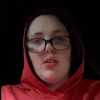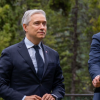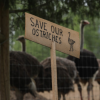Selina Robinson offered to resign twice before she quit the government on Monday, Premier David Eby has claimed.
The former post-secondary education minister was targeted by anti-Israel activists after she made a comment about the founding of the Israeli state.
Robinson said the land upon which the country was built was "crappy," later clarifying – in the first of her three apologies – that she was referring to its poor natural resources.
She was attacked by numerous individuals and groups, including NDP leader Jagmeet Singh, the National Council of Canadian Muslims and a small group of men claiming to speak for various Islamic associations in British Columbia.
On Tuesday, her constituency office was vandalized and daubed with graffiti including "Zionism is Nazism" and "We do not accept your apology." Coquitlam RCMP said it is investigating.
Asked if the final decision for Robinson to leave government was his, Eby told a news conference on Wednesday that she offered to quit twice and he accepted on Monday.
Eby said the weekend leading up to the resignation was "really difficult" for a lot of people in BC and he acknowledges the "important role" Robinson – who is Jewish, and a supporter of the Israeli state – played in cabinet for the Jewish community.
"She’s going to go and do her work," Eby said of Robinson, who remains in the NDP caucus.

Some in the Jewish community have accused Eby of double standards, saying they’re offended by what happened to Robinson after she apologized and was willing to make amends.
Ezra Shanken, CEO of the Jewish Federation of Greater Vancouver, said the departure of Robinson — who is one of the most prominent Jewish politicians in BC — was “shocking.”
“I think at a time when the intimidation of Jewish students on campus is as high as it’s ever been, to see a Jewish minister of advanced education stepping down sends really a chill down my spine,” he said.
“It’s obviously a very, very shocking thing to see, especially after Minister Robinson was apologetic and also came up with a plan for reconciliation.”
Nico Slobinsky, Pacific vice−president of the Centre for Israel and Jewish Affairs, said Robinson’s removal undermines the Jewish community’s confidence in British Columbia’s government and signals that Jewish leaders are held to different standards than others.
Slobinsky said in a statement the Jewish community had lost a strong voice at a time of increasing acts of antisemitism and anti−Israel protests.
“The community is both offended and hurt by what has happened to a great ally and British Columbian," he said.
"Given this obvious double standard and loss of Jewish representation in cabinet, Premier David Eby must share what steps he is going to take to repair the relationship and restore the community’s trust in him and his government."
The vandalism at Robinson’s constituency office and the calls for her to resign her seat appear to be organized attempts to force her to leave politics, Slobinsky said in an interview.
"She’s trying to make amends and a small, loud and very aggressive mob keeps harassing her because of being Jewish," he said. "What that is sending is a chilling message that there is an orchestrated attempt to push Jewish people out of politics. That’s a very dangerous thing for all of us."
The Centre for Israel and Jewish Affairs says it’s a national, non−partisan, non−profit organization whose mission is to preserve and protect Jewish life in Canada and advance policy interests of Canada’s organized Jewish community.
Nine rabbis signed a letter to Eby on Tuesday supporting Robinson and expressing disappointment in the premier’s decision to accept her resignation.
Slobinsky said the rabbis are echoing the frustrations and concerns of the Jewish community to the premier.
"We believe you have capitulated to a small but loud group of people," said the letter from the Rabbinical Association of Vancouver, chaired by Jonathan Infeld. "This is dangerous for our community and the strength of our province’s democracy."
The rabbis highlighted an incident on International Holocaust Remembrance Day last month, when Eby’s social media accounts posted messages saying "we stand with the Muslim community throughout Canada on this sorrowful day of remembrance."
Eby later called it a mistake by a staff member. The rabbis said they were deeply offended but accepted his apology.
Robinson, they said, "did not receive the same empathy."
"We will remember this day the next time you ask for our trust and support," said the rabbis.
Robinson made her remarks on Jan. 30 in the context of there being a lack of knowledge among the young about the history of Jews, mentioning both the Holocaust and the founding of Israel.
“They don’t even understand that Israel was offered to the Jews who were misplaced, displaced,” she said.
“So they have no connection to how it started. They don’t understand that it was a crappy piece of land with nothing on it. You know, there were several hundred thousand people, but other than that it didn’t produce an economy; it couldn’t grow things, it didn’t have anything on it.
“And then it was the folks who were displaced that came and the people that had been living there for generations, and together they worked hard and they had their own battles, right? We know the history, most of the world does not know that history, and certainly 18-34-year-olds have no idea.”
Between 1918 and 1948, most of the land now constituting Israel was administered by the British Empire.
In 1947, the UN approved a plan to partition the land – then known as "Mandatory Palestine" – between Jews and Arabs.
The Jews agreed to the plan, but the Arabs refused, leading to the 1948 Arab-Israeli War, which was won by Israel, a country whose independence was declared in 1948.
According to the CIA World Factbook, Israel has few natural resources, "limited arable land" and "restricted natural freshwater resources."
It also suffers from desertification and a lack of forest resources, the CIA explained.
Jewish settlers in the 19th and 20th centuries had to drain large stretches of swampland to free up land for agriculture and homes, a source of pride for many Israelis.
– WITH FILES FROM CANADIAN PRESS
















